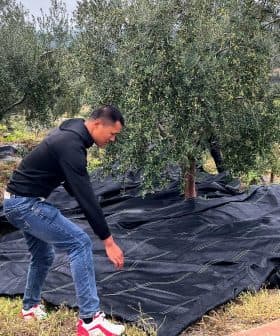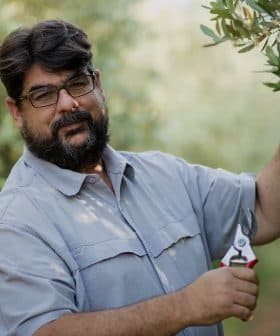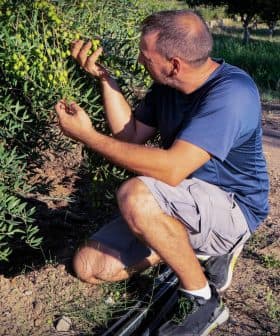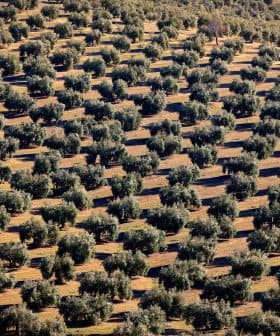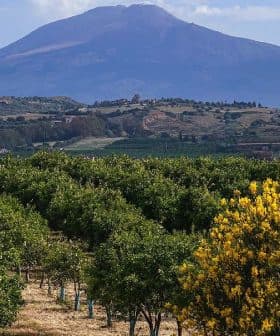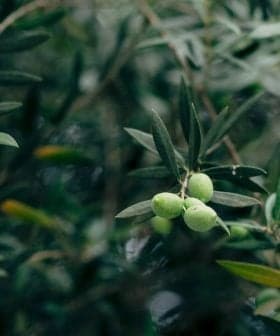Production Stagnates in Egypt as Harvest Approaches
As millions of new olive trees are planted, another poor harvest is predicted after a cold winter and hot growing season.
 While olive trees grow, oil production does not in Egypt.
While olive trees grow, oil production does not in Egypt.After a cold winter followed by a hot growing season, Egypt is expecting low returns in terms of its olive oil production, but the possibility of a late surge for certain cultivars remains. Egypt, the world’s second-largest table olive producer, is in the midst of planting 100 million olive trees by the end of next year, aiming to boost its production and become one of the top seven countries in olive oil production.
After a cold winter followed by a hot growing season, Egypt is expecting low returns in terms of its olive oil production. However, the possibility of a late surge for certain cultivars remains.
The forecast comes as Egypt, the world’s second-largest table olive producer, is in the midst of planting 100 million olive trees by the end of next year.
Expectations in production of oil will probably drop for the beginning of the olive oil season but will likely pick up towards the end with the late varieties such as Coratina.
“The winter was colder than usual. Many cold hours affected the natural development of flowers and delayed the blooming season by at least 15 days for most varieties,” Roba Ashraf of Wadi Food, one of the country’s largest olive oil producers, said. “However, the vernalization was so intense that the trees had more flower buds than the previous years.”
“The oil olive varieties produced more fruits than the previous two seasons,” Ahraf added. “However, due to hot weather conditions, some olives are ripening too fast and are being harvested before reaching the highest levels of oil content. Expectations in production of oil will probably drop for the beginning of the olive oil season but will likely pick up towards the end with the late varieties such as Coratina.”
See Also:2019 Harvest NewsMild winters are best for the types of cultivars that thrive in Egypt – namely Picual, Manzanilla, Kalamata, Frantoio and Arbequina, among others.
In 2018, Egypt produced 20,000 tons of olive oil, a large decrease from the two previous years, in which the country produced a record-setting 30,000 tons (2016) and 28,000 tons (2017).
Prior to the start of the 2018 harvest year, Egypt rejoined the International Olive Council, bringing its production procedures in line with the rest of the olive oil-producing world.
Later that year, Egypt’s Minister of Agriculture and Land Reclamation, Ezz el Din Abu Steit, said the country would invest in planting olive trees on desert lands, with the goal of becoming one of “the top seven countries in olive oil production.”
However, it will take more than planting millions of olive trees to boost Egypt’s production, Ashraf said, with weather events, resource costs and lags in infrastructure as the primary obstacles.
“The main obstacle that we will face is the cost of production coupled with the costs of harvesting while mechanization of the different operations is not well developed in Egypt,” Ashraf said. “Irrigation is 100 percent in most olive groves in Egypt and the cost of water is increasing rapidly. Labor is also a limiting factor as the harvest season coincides with many other crops that bring better returns such as pomegranates and citrus.”
Ashraf said Wadi Food and other producers are welcoming the investment from the government because it will help best the country’s profile beyond just that of a table olive producer.
Awards help boost its reputation, too, such as the Silver that Wadi Foods won at the 2019 NYIOOC World Olive Oil Competition for its Picual.
As more Egyptian olive oils are shared with the global community, it will help buck the trend of olive oils from the country being blended with other oils by large international companies.
The best thing that could happen for Egyptian olive oil producers, Ashraf said, is for consumers in the country to be reintroduced to the quality of the local product.
“Historically, the ancient Egyptians knew and used olive oil in their diet but also to illuminate their temples and as an ingredient of mummification,” Ashraf said. “Since then, olive oil was rediscovered recently with the new health trends in living as well as newly adopted culinary habits. This change has made the Egyptian consumer aware of the benefits as well as the quality attributes of the local olive oil.”


